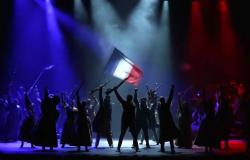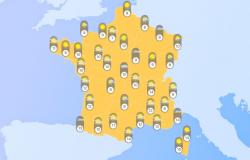
During his visit to Jerusalem, the Minister of Foreign Affairs refused to enter a religious site considered French territory, due to the presence of armed Israeli police officers inside. These agents, present “without authorization” and refusing to leave the premises, ended up tackling two French gendarmes to the ground and briefly arresting them after an exchange of words. The area of the national domain of Éléona, which is under the protection of French diplomacy, is located on the cave where, according to tradition, Christ taught the Pater Noster. Located on the Mount of Olives in East Jerusalem, this region has been under Israeli occupation since 1967.
We cannot suspect this recently appointed minister, nor his delegate minister, Benjamin Haddad, of sympathizing with the Palestinians, to say the least. To this day, France continues to supply weapons to Israel. Alarming UN figures indicating that 70% of the 45,000 victims in Gaza are women and children, including 15,000 students, have no effect on the ruling French right which has openly championed Israel’s cause.
The timid reactions and media coverage following this diplomatic incident are indicative of what we have seen since the start of the war.
During a program on LCI, Samantha de Bendern (“Researcher” at the Royal Institute of International Affairs) declared: “One thing that could excuse the behavior of the Israelis “If the gendarmes looked of North African origin, or had look like they’re Arab. And the journalist replies: “We checked, this is not the case”without reacting further to the enormity of this assertion.
This remark raises questions about the prejudices which condition the positions taken in this war. The idea that the appearance of the gendarmes, if it could make people believe that they were of North African origin, could excuse the aggression of the French gendarmes and the non-respect of French territory is simply astonishing. Even more, the lack of reaction from the journalist who hosted the program is a reflection of something now admitted on several television sets: the dehumanization of Palestinians and the racial crime of Arabs.
This type of comment reflects the accepted state of mind, consciously or unconsciously, of many. The Arabs are the source of the problem.
This bias, which is perfectly felt by North Africans in France, seems to have become a norm in the media treatment of the war in Gaza. A Palestinian is a terrorist, and the flag of Palestine or the wearing of a keffiyeh are offenses, when it is not qualified as an anti-Semitic act.
The ruling party in Israel keeps repeating that this is a war of civilization, and it can be proud of the results obtained in a certain public opinion. A fight between hooligans from two football clubs is described, in media language, as a pogrom and heads of state are rushing to denounce these acts without having sought to understand the reality of the facts in their entirety.
One might wonder how the columnist’s reflection on LCI would have been perceived if it had concerned other communities.
Furthermore, the diplomatic incident in question highlights the complexity of geopolitical issues in the Middle East.
France, a former colonial power with very strong ties to the Maghreb, has not been prudent in its handling of this war. In this balancing act, she alienated all parties.
Why do few remember that, according to international conventions, an occupied people has the right to defend themselves, even with weapons? This right to self-defense is recognized as a fundamental principle of international humanitarian law, allowing populations under occupation to resist oppression and injustice.
The humiliations and abuses suffered by the Palestinians are known to everyone, but they do not provoke any reaction from the Western chancelleries which supply weapons to the occupier. The assassinations of Palestinians in the occupied West Bank provoke little reaction. Neither are the bombings of Lebanon and the thousands of deaths.
Any form of challenge to Israeli policy is met with a flood of accusations of supporting terrorism and, worse, qualifiers that I hardly dare write.
What happened at the Éléona national domain is not an isolated event and is not new. Previous presidents, such as Chirac and Jospin, also experienced similar situations. All the diplomats who have been involved in the Middle East file report revolting realities, but in Paris, the French authorities remain disconnected from these conclusions.
La France insoumise is the only parliamentary group to have taken pro-Palestinian positions and this is not a good thing for the credibility of the French political class which, by dint of running behind the extreme right, no longer knows where to give support. the head. But who can believe in the sincerity of the extreme right? She just hates Arabs more than Jews. This is the only thing that explains his position in this conflict. The French Gaullist right knows this perfectly but gets lost in aberrant political considerations and calculations.
The Eléona diplomatic incident and the comment on LCI, although appearing trivial in relation to the destruction of Gaza and the 45,000 deaths, are indicative of the power dynamics, stereotypes, prejudices and identity conflicts that influence policies in France and beyond.
For free information on Palestine
We were one of the first French media to defend the right of Palestinians to have a viable state while respecting UN resolutions. And we have tirelessly defended peace in the Middle East. Help us continue to inform you about what’s happening there. Thanks to your donations.
I want to know more!





